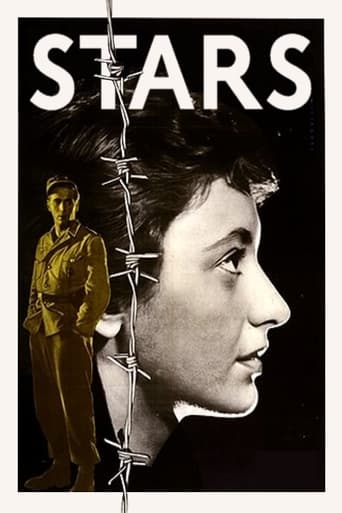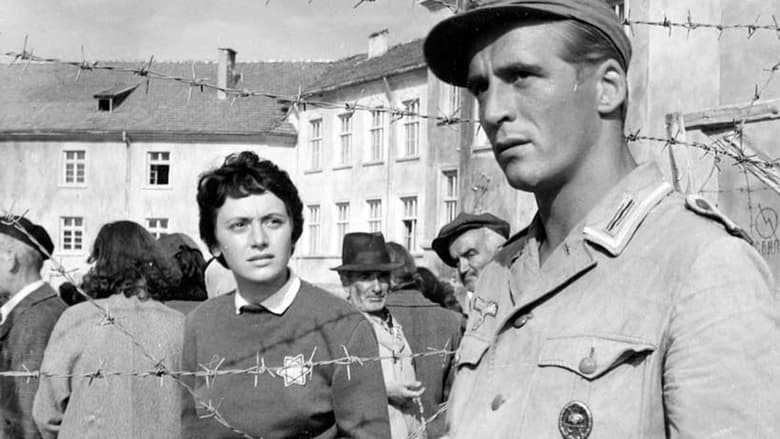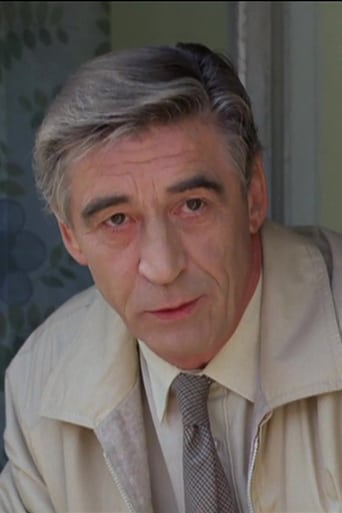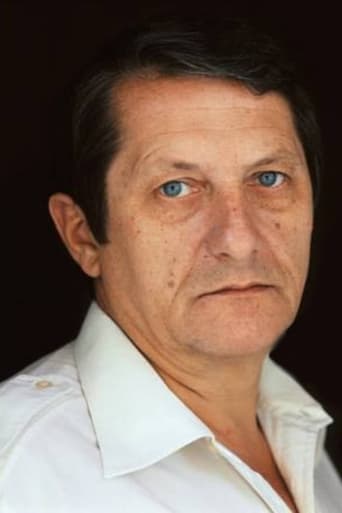

Stars (1959)
Stationed in a secluded Bulgarian village in 1943, Walter – a German Wehrmacht sergeant and artist – lives in almost idyllic distance from the war. Then a transit camp is set up for Jews arriving from Greece. When Ruth, one of the internees, asks Walter to help a pregnant woman, the two form an unlikely bond.
Watch Trailer
Cast


Reviews
"Sterne" or "Stars" is an East German / Bulgarian black-and-white film from 1959, so this one is already almost 60 years old. The director is Konrad Wolf, one of the GDR's most successful filmmakers. He was not the most prolific filmmaker, also because of his fairly early death,but stuff like "Solo Sunny" or "Ich war neunzehn" is still known today. His work here is one of his earlier career projects. He was in his early 30s here. The 1950s were of course, also in film, mostly about coming to terms with the years of Nazi Germany and World War II and this is what the film is about too. It focuses on the romantic relationship between a Nazi officer and a Jewish woman, who is held prisoner with many others. I must say I am lightly surprised that this topic has not been used in films that many times really. Of course, it is a bit absurd because Nazis hated Jews, but if you see the German soldier as an individual, which they all were, then it totally makes sense. Lead actor Jürgen Frohriep portrayed him convincingly and his female equivalent Sasha Krusharska was at least as good. What a shame she did not pursue a career in films.I also liked some of the metaphors in here, such as the use of the baby he manages to save early, but that still dies eventually because of the difficult conditions, something that can be seen synonymously for their relationship with death awaiting at the very end. I personally believe many of the early war-themed films from the 1940s and 1950s were fairly forgettable and had little to offer about the subject really, but this one here is a bit of an exception. Wolf shows his skill and Bulgarian writer Angel Vagenshtain shows us why he was asked to work on several scripts back then that resulted in a handful films that are still above-average known compared to the many GDR films that vanished into oblivion over the decades. If you like black-and-white films and are interested in the complex subject of Nazi Germany, then this one is absolutely worth checking out. This film does not even attempt to be a defining work in terms of submitting knowledge to the audience. instead it goes for the very personal lives of the two main characters and manages an emotional achievement. Good decision, I recommend the watch.
Yes, I saw this film myself back in Calcutta, India at the Goethe Institut. Unfortunately films such as these do not have any kind of DVD/VHS distribution at all. And that's not unusual. As I write, even the more well-known of the East European directors like Andrzej Wajda, Krzystof Zanussi have so little distribution. So no wonder others are relatively unheard of. Among the East Germans like Konrad Wolf (director of this one), I think Frank Beyer has one on DVD (Jakob the liar - that too probably after the success of its English remake), and Wolfgang Staudte has one with his 1946 masterpiece - The murderers are among us. Sorry I spoke so little about the film itself, but it's so frustrating that European arthouse is so much subordinated to Hollywood.
Even the two German states co-existed side by side for almost 40 years the cultural exchange was a minimum. One thing, West Germans should learn from the neighbors is the fact how seriously the East German cinema treated the difficult subject of the holocaust. STERNE (Stars) is one of the most touching movies I've ever seen. The tragic love story between a Jewish school teacher and a German soldier is filmed with decency and careful respect. Off course there is no happy-end. The movie ends with a shattering close up of the Jewish girl Ruth (Sascha Kruscharska) - staring out of the death train's barred skylight. How sad that even a movie like this didn't reach the Western audience during the cold war.
I saw this modest yet powerful film at Occidental College over a decade ago. There were only about two dozen people in the small classroom. There couldn't be a greater contrast with Hollywood's blockbusters. Instead of tormenting us with the horrors of war, this small screen, black and white film envelops us in a cozy intimacy and tries to reach for our deepest humanity and sense of poetry. We get the feeling that war is above all a profound shame, and that everyone is human. That's much more powerful than seeing a lot of combat footage. Small films like this do not even register on the radar of a jaded public. If they are not promoted by discerning people, they will fade into oblivion. Ironically, the most tragic thing about this film, is that it fails to make an impact. Don't you believe that the cream always rises to the top.




